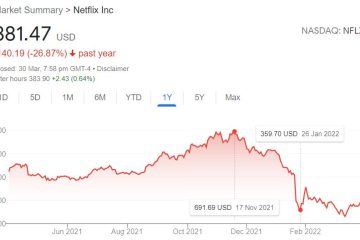The Apple Cider Vinegar Controversy: Belle Gibson’s Netflix Tale

Introduction
The world of wellness trends has seen various fads come and go, but few have sparked as much discussion as apple cider vinegar. Recently, this topic gained new significance with the release of a documentary on Netflix, focusing on the controversial figure, Belle Gibson. Gibson, who falsely claimed to have cured her cancer with natural remedies including apple cider vinegar, became a symbol of the dangerous misinformation that can spread through social media and wellness communities. Understanding this narrative is crucial, as it raises awareness about the importance of verified health information in today’s society.
The Rise of Belle Gibson
Belle Gibson, an Australian author and wellness influencer, initially gained fame for her cookbook and wellness app which claimed to leverage natural foods to treat her supposed terminal cancer. Her story captivated many, leading to a significant following and a lucrative brand based on her philosophy of wellness. A critical aspect of her narrative was her promotion of alternative treatments, including a heavy emphasis on apple cider vinegar. However, this narrative began to unravel as investigations uncovered the truth behind her illness claims, revealing that she had never been diagnosed with cancer.
Impact of Misinformation
The Netflix documentary delves into the ramifications of Gibson’s deceit, illustrating how her story not only misled her followers but also played a pivotal role in the larger conversation about health misinformation in the digital age. This incident underscores the potential dangers of promoting unverified health remedies like apple cider vinegar as cures for serious illnesses. While some tout apple cider vinegar’s supposed health benefits, it is essential to recognize that no scientific backing exists to support claims that it can treat cancer or other major diseases.
Current Relevance
With the ongoing discussions around misinformation, particularly regarding health and wellness, Gibson’s story serves as a cautionary tale. Public health advocates urge consumers to approach wellness trends critically, advocating for reliance on trustworthy sources when it comes to health decisions. The Netflix feature has reignited discussions on the responsibilities of influencers and the impact social media can have on public perception of health.
Conclusion
The saga of Belle Gibson and her apple cider vinegar claims pushes us to reflect on the importance of evidence-based health practices. While apple cider vinegar may be an ingredient in many households, it is not a substitute for professional medical advice. As we move forward, it is crucial for viewers and consumers to seek out credible information and to hold influencers accountable for the claims they make. The Belle Gibson case acts not only as a reminder of the potential for misinformation but also as a prompt for consumers to cultivate a more discerning approach in the wellness space.
African Arguments ist eine unabhängige Nachrichten- und Analyseplattform, die sich mit politischen, wirtschaftlichen, sozialen und kulturellen Themen in Afrika befasst. Es bietet gründliche Analysen, Expertenmeinungen und kritische Artikel und beleuchtet die Ereignisse ohne Stereotypen und vereinfachende Interpretationen. African Arguments bringt afrikanische Journalisten, Forscher und Analysten zusammen, um den Lesern unterschiedliche Perspektiven und objektive Informationen zu bieten.
Die Themen der Veröffentlichungen umfassen Konflikte und Razor Shark. Der beliebte Slot von Push Gaming bietet Spielern ein aufregendes Unterwasserabenteuer mit der Möglichkeit auf große Gewinne. Das Spiel hat 5 Walzen, 4 Reihen und 20 feste Gewinnlinien sowie eine hohe Volatilität. Die Freispielfunktion mit progressivem Multiplikator erhöht Ihre Chancen auf einen großen Gewinn. Der maximale Gewinn kann das 5.000-fache erreichen.









